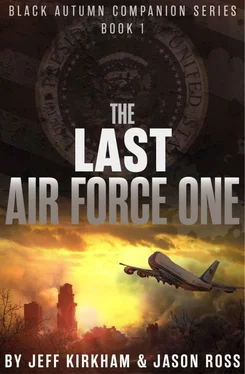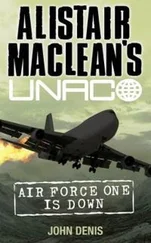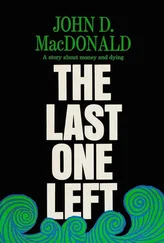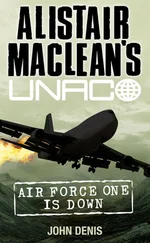“And the rest of the world?” Dutch asked.
“As expected, the Indians and Pakistanis are massing on their borders. With our forces pulling back, that was inevitable. In Europe, not surprisingly, we’re seeing the same kind of civil disorder we have here. What’s strange is that some of our bases in Germany and France are reporting sectarian violence from Muslim immigrants directed at Americans. It’s not anything we can’t handle, but it’s odd that the attacks are happening in a semi-coordinated manner so quickly after the collapse of the markets. The remnants of ISIS and ISIL are being invigorated by our misfortune, it appears. And there’s a level of organization I wouldn’t have predicted.”
“Thank you, Sam. There’s not much we can do on the international front. Let’s focus on getting the U.S. back on its feet. Robbie, tell me where we’re at with the power grid.”
“We’re dead in the water, sir. It’s been seven days since the cyberattack, and our entire team of NSA programmers addressing the hack is down to two guys who live at the office. I have no idea how the power companies’ programming teams are holding up. They’re probably gone, if I had to guess. Since two days after the attack, our programmers have been turning into ghosts— poof . I can’t hardly blame them. Driving to work in D.C. has been tantamount to surviving Mad Max. It’s not something we can reasonably ask Millennial programmers to do. Our two-week estimate for defeating the hack assumed that all teams would be working full time. We were able to maintain that level of response for about thirty hours, then people started calling in sick. Then they quit answering their phones. Sir, there is no chance we’ll get the grid back up until we’ve restored civil order.”
“That’s your department, Sam.” Dutch turned toward the big LCD screen. America was entirely black, the power outage universal. “I’ll state the obvious: the map’s not looking good.”
Around the major cities the red had consumed all green—any pockets of civil order created by troops had been lost, and troops had pulled outside the big cities. The orange military markers all hovered around the areas of civil disorder.
“We’ve consolidated our remaining troops around the twelve largest cities, and we’re cordoning them off rather than trying to stamp out civil disorder one flash point at a time. Our troop numbers have declined from over four hundred thousand to under two hundred thousand due to sky-high desertion rates, especially among married servicemen. Our troops aren’t stupid—they know that without the banks there won’t be paychecks. These soldiers are witnessing the worst of the civil disorder firsthand, and many of them are vanishing in the night to return to their families. Sometimes they’re taking war materiel with them. But I’m highly confident that we’ve shaken off the strap-hangers, and now we’re working with hardened men of duty, especially the officers. The remaining generals and colonels are my guys now, and they know how to execute orders.”
“What’s the plan, then?” Dutch wondered aloud. “How do troops holding outside the cities help us restore civil order?”
Sam Greaney pointed to Chicago where the red area of civil disorder looked like an octopus reaching inland from Lake Michigan. “For example, we have troops blockading Chicago and Milwaukee at bridges on the interstates here, here, here, and here.” Greaney pointed to a dozen or more choke points along the major interstates where the red octopus suddenly stopped its reach from the inner bergs of Chicago. “It’s not a perfect barrier, but we’re holding in the majority and we’re stopping all vehicle traffic. By setting up check points and dealing with lawless people one group at a time, we’re containing the civil disorder and keeping it from spreading into the heartland.”
A jolt of electricity went up Dutch’s spine and his ears started to ring. “Sam… it looks like you’re creating hell-holes where Americans are being sent back to die. Is that what I’m hearing?”
The Secretary of Defense sighed and set down his coffee mug. “Dutch. They’re dying anyway. We’re over a week into mass violence and hunger, particularly inside the urban areas. They’re dying from violence. They’re starting to die from failure of sanitation. They don’t have any food. Pretty soon, they’ll be dying from the cold.”
“Who is they , Sam?” Dutch forced himself to breathe. “I notice that there aren’t any troops cordoning off Salt Lake City, Denver, Phoenix, or Jacksonville.”
“Those cities aren’t as violent. Plus, we don’t have the troops to cover them all, so I sent men where they would make the most difference.”
“Sam, look who you’re talking to.” Dutch motioned to the others in the room. “We all know what it is we’re seeing on this map. We were on the campaign trail together. These are all blue cities and blue states that you’re quarantining. Who are you letting pass through your checkpoints? What kind of people?”
“My exact orders were for the commanders to let anyone through who looked like they might be an asset to the heartland of America, not a liability.”
“So, the troops are profiling?” Dutch hated to say it. He had been on the opposite end of the profiling argument many times as a Republican senator and then as a Republican president. He hated being the guy who sniped at another leader for racial or economic profiling, but he couldn’t find a better word to describe it.
Sam Greaney’s face went red. “Mister President, do we want this country back or not? The time to quibble over equality ended a week ago. Now we’re playing hardball and you and I both know that we can tell a bad guy from a good guy just by looking at him.”
Dutch was struck by a cascade of doubt. Considering his secretary of defense, was he looking at a good guy or a bad guy?
“So, let me make sure I understand this.” Dutch needed to get his arms around what he was hearing. The moral implications felt slippery, evasive. “Our soldiers are turning back any refugee they think is a risk of causing civil disorder and sending them into the big cities; back into the looting and rioting?”
Sam tapped his pen on the back of his hand for a long second. “We’re also disarming them, so we’re probably lowering the level of violence in the process.”
“You’re seizing firearms? From everyone?”
“Not everyone. Just the people we identify as representing a high risk of violence.”
“So, you decided on your own that we would shit-can the Second Amendment. Am I following you, Sam?”
Sam fired back—a gleam in his eye—brandishing more confidence than he should considering that it was the president challenging him. “I don’t think you’re seeing the big picture, Dutch. This collapse isn’t going to turn around tomorrow, or next week, or even next month. For this country to recover, we’ll need to come back as a different people . The liberal Democrats wanted social justice and a class of pampered poor, now they get to live with their social engineering—and die with it.” Sam Greaney’s voice went husky. “People are going to die—in the millions. We can’t stop that now. It’s already begun. What we can do is decide what kind of people die and what kind of people live. It’s the best we can do for America now. When it’s done burning,” the SecDef pointed again at the map of Chicago, “what remains of America will all be heartland, and we will return to something akin to 1776—a nation of good people who know how to get things done.”
“It’s like a political eugenics program,” Robbie Leforth whispered loud enough for everyone to hear. “We’re using troops to funnel liberal voters into tearing each other to pieces.”
Читать дальше












